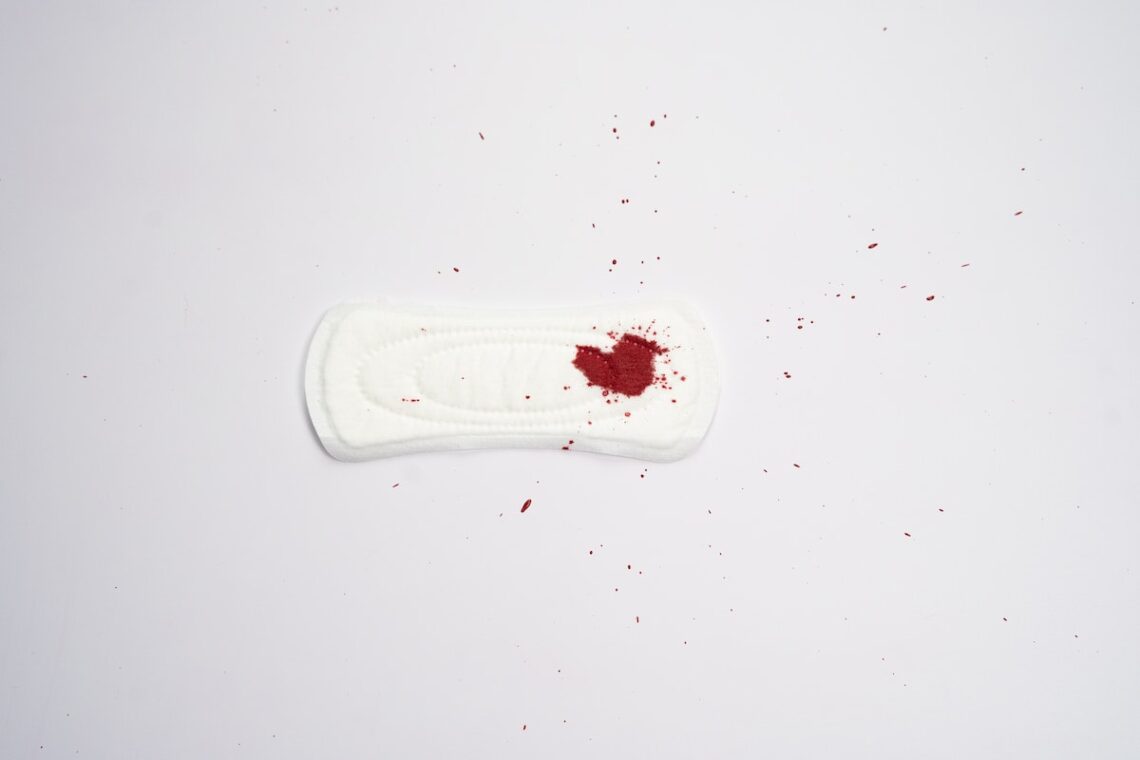Seeing blood after sex can be frightening when pregnant. But, in most cases, it is normal and not a sign of a miscarriage or preterm labor.
Still, it’s important to call a healthcare professional if you notice bleeding after sex while expecting. This way, they can double-check your condition and make sure you are safe.
Causes
Bleeding after sex when you’re 8 weeks pregnant is most likely due to the implantation of the fertilized egg in your uterus (womb). Your doctor will explain this to you in more detail, but it usually results in light spotting that might appear on toilet paper or underwear. This is not a serious condition, but your doctor will probably want to check on you and give you some advice before you resume penetrative sex (2).
Spotting during pregnancy, especially in the early stages, may also be caused by hormonal changes and changes in your cervix, which is the opening to your uterus. Your cervix gets more stretched out as you grow, which makes it more sensitive. It may also bleed if it gets irritated by sex, certain medications or other factors such as infection.
A more serious cause of bleeding is a condition called placenta previa, in which the placenta nourishes the baby but covers the cervix completely or partially (3). This is a rare cause of miscarriage, but if you are experiencing heavy, bright red bleeding and abdominal pain, seek medical assistance immediately (5).
Bleeding near the end of your pregnancy can also be a sign that you’re getting close to your due date. This is often referred to as the “bloody show.” It’s actually a mucus discharge that has been tinged with blood. Your cervix begins to dilate as you approach your due date, which can sometimes dislodge the mucus plug (3).
Symptoms
Bleeding after sex at any stage of pregnancy can cause concern, but it’s usually nothing to worry about. The most important thing is that you get checked out by a doctor to make sure everything’s okay with you and the baby.
Light bleeding after sex or spotting isn’t anything to worry about during early pregnancy. However, you should always wear a pad to help track the amount of blood you’re losing. Heavy or prolonged bleeding isn’t normal and could be a sign of a more serious problem.
Several small blood vessels develop in the cervix during pregnancy to meet the increased oxygen demands of the growing fetus and mother. These blood vessels are delicate and can be injured easily during sex or any other pressure on the cervix. This can lead to a miscarriage.
As you approach the end of your pregnancy, it’s common for the cervix to become more sensitive. This can lead to light bleeding after sex or spotting, especially when the cervix is irritated by contact with the penis or if there’s cervical ectropion, which happens when the cervix turns sideways during intercourse.
Yeast infections or sexually transmitted diseases, such as chlamydia and gonorrhea, can also cause spotting. If your spotting is heavier and you’re within days (or even hours) of your due date, it could be an early sign of labor.
Treatment
Bleeding after sex is not usually considered a serious problem during pregnancy. Any bleeding at all is worrying, but most of the time it’s not a sign of anything harmful and will clear up. You should always contact your doctor or midwife if you have any vaginal bleeding, even if it’s just light spotting, to make sure you and your baby are safe.
The most common cause of light bleeding after sex is due to hormonal changes. During the first trimester, increased levels of progesterone can lead to your blood vessels enlarging and becoming more fragile. This can make it easy for the uterus to be bumped or cut by anything, including sex. This kind of bleeding is usually painless and short-lived, and is often mixed with mucus or semen.
It’s also possible that you could be having implantation bleeding early on in your pregnancy. This is when the fertilized egg implants in the lining of the uterus and causes bleeding. Again, this is usually painless and only lasts a few days. It is often mixed with a sticky semen or mucus.
In rare cases, sex and sexual activity during pregnancy can lead to a miscarriage. If you’re worried that your bleeding is a sign of a miscarriage, it’s important to speak to your GP or midwife as soon as possible so they can do an ultrasound and check the status of your fetus.
Prevention
Bleeding after sex during pregnancy can be scary, but it’s not always a sign of something serious. In fact, it happens to up to 25% of pregnancies in the first trimester.
The hormone progesterone stimulates the growth of blood vessels around your cervix (the mouth of your womb). Sometimes, vigorous or frequent sex can cause these vessels to rupture or break. This can lead to light spotting, or bleeding that looks like your regular period.
If the bleeding is pink, very light red or brown and without clots or tissue, it’s likely normal. If the bleeding is dark red, it may be a sign that you have had a miscarriage in the past and might need additional care.
Heavier bleeding and pain that is not associated with intercourse is a possible sign of an ectopic pregnancy, which can be dangerous for both mother and baby. If you’re worried, ask your practitioner about taking a pelvic exam.
Heavier bleeding, accompanied by cramping or back pressure and a fever, may be a sign of early labor and needs to be evaluated right away. Also check in with your practitioner if you’re experiencing other signs of an infection, including vaginal itching or changes to your vaginal discharge. Certain sexually transmitted infections, such as chlamydia or gonorrhea, can also cause bleeding after sex.

